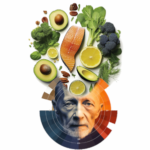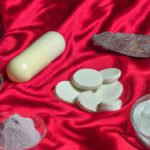1: Now the serpent was more subtil than any beast of the field which the LORD God had made. And he said unto the woman, Yea, hath God said, Ye shall not eat of every tree of the garden?
In this verse, the serpent approaches Adam’s wife and questions whether God had really commanded them not to eat from any tree in the garden. The serpent is described as wise/deceitful, plants doubt in Adam’s wife’s mind about God’s instructions.
In Hebrew the word Arum was used. Arum was translated in KJV as subtil and NAS as crafty. Subtil can mean wise, deceitful, or fraud according to www.BibleStudyTools.com
2: And the woman said unto the serpent, We may eat of the fruit of the trees of the garden:
The woman responds to the serpent by clarifying that they are allowed to eat the fruit of the trees in the garden, except for one specific tree.
3: but of the fruit of the tree which is in the midst of the garden, God hath said, Ye shall not eat of it, neither shall ye touch it, lest ye die.
The woman explains that God instructed them not to eat or touch the fruit of the tree that is in the middle of the garden, warning them that doing so would result in death.
4: And the serpent said unto the woman, Ye shall not surely die:
The serpent directly contradicts God’s warning to the woman, claiming that she will not die if she eats the forbidden fruit. This is the first lie the serpent tells.
5: for God doth know that in the day ye eat thereof, then your eyes shall be opened, and ye shall be as gods, knowing good and evil.
The serpent continues to deceive the woman, suggesting that by eating the fruit, her eyes will be opened, and she will have knowledge of good and evil, just like God. The serpent implies that God is withholding something valuable from them.
6: And when the woman saw that the tree was good for food, and that it was pleasant to the eyes, and a tree to be desired to make one wise, she took of the fruit thereof, and did eat, and gave also unto her husband with her; and he did eat.
The woman is enticed by the serpent’s words and starts to consider the tree’s fruit. She sees that it is visually appealing and desirable for gaining wisdom. The woman succumbs to temptation, takes the fruit, eats it, and also shares it with her husband, Adam, who also eats.
7: And the eyes of them both were opened, and they knew that they were naked; and they sewed fig leaves together, and made themselves aprons.
After eating the forbidden fruit, Adam and the woman’s eyes are opened, and they become aware of their nakedness. They feel shame and sew fig leaves together to make coverings for themselves.
8: And they heard the voice of the LORD God walking in the garden in the cool of the day: and Adam and his wife hid themselves from the presence of the LORD God amongst the trees of the garden.
Adam and his wife hear God walking in the garden, and because they feel ashamed and guilty, they attempt to hide from Him among the trees.
9: And the LORD God called unto Adam, and said unto him, Where art thou?
God calls out to Adam, seeking him and asking where he is. This question is not for God’s knowledge but to prompt Adam to recognize his separation and disobedience.
10: And he said, I heard thy voice in the garden, and I was afraid, because I was naked; and I hid myself.
Adam responds, confessing that he hid because he was afraid since he realized he was naked. He acknowledges his fear and shame.
11: And he said, Who told thee that thou wast naked? Hast thou eaten of the tree, whereof I commanded thee that thou shouldest not eat?
God questions Adam about his knowledge of being naked, asking who informed him. God also directly asks if Adam has eaten from the tree that He had specifically commanded him not to eat from, highlighting the disobedience.
12: And the man said, The woman whom thou gavest to be with me, she gave me of the tree, and I did eat.
Adam responds, placing blame on his wife and indirectly on God, saying that it was the woman God had given him who offered him the fruit, and he ate it. Adam avoids taking responsibility for his actions.
13: And the LORD God said unto the woman, What is this that thou hast done? And the woman said, The serpent beguiled me, and I did eat.
God then questions the woman about her actions, and she admits that she was deceived by the serpent, leading her to eat the forbidden fruit. She acknowledges her mistake but also places blame on the serpent. Beguile meaning to entice.
14: And the LORD God said unto the serpent, Because thou hast done this, thou art cursed above all cattle, and above every beast of the field; upon thy belly shalt thou go, and dust shalt thou eat all the days of thy life:
God addresses the serpent, pronouncing a curse upon it. The serpent is condemned to move on its belly and consume dust for the rest of its life. This curse symbolizes the serpent’s degradation.
What was the form of the serpent before it was given the curse (to be a snake)? The first verse talked about it being the most subtil among any other beast of the field.
15: and I will put enmity between thee and the woman, and between thy seed and her seed; it shall bruise thy head, and thou shalt bruise his heel.
This verse is often referred to as the protoevangelium or the first proclamation of the Gospel. God declares that there will be ongoing hostility between the offspring of the woman and the offspring of the serpent.
Is this literally stated, as in man kills serpents/snakes, and snakes attack man?
This comment is retracted, reason: Genesis 4 verse 1 says Adam knew Eve, and she conceived and bare Cain.
Or in metaphorical way, as in the seed of the woman, referring to Jesus Christ, will triumph over the serpent (deceitful people)? If this is the case, did Eve sleep with the serpent and planted a seed in her? Is Cain the seed? Does this mean that the fruit of tree is a symbol of knowing sin? That when the serpent beguiled Eve to sleep with it (a beast), she committed sin. Because after Adam and Eve had it, not only that they knew good, but also bad?
16: Unto the woman he said, I will greatly multiply thy sorrow and thy conception; in sorrow thou shalt bring forth children; and thy desire shall be to thy husband, and he shall rule over thee.
God speaks to the woman, declaring that as a consequence of her disobedience, she will experience increased pain in childbirth. She will desire her husband and her husband will rule over her.
17: And unto Adam he said, Because thou hast hearkened unto the voice of thy wife, and hast eaten of the tree, of which I commanded thee, saying, Thou shalt not eat of it: cursed is the ground for thy sake; in sorrow shalt thou eat of it all the days of thy life;
God addresses Adam, pronouncing a curse on the ground because of his disobedience. Adam will experience toil and hardship in his work to cultivate the land for sustenance throughout his life.
18: thorns also and thistles shall it bring forth to thee; and thou shalt eat the herb of the field;
As a consequence of Adam’s disobedience, the ground will yield thorns and thistles, making his work more difficult. Adam will have to eat plants from the field, indicating a change in the ideal provision of food.
19: in the sweat of thy face shalt thou eat bread, till thou return unto the ground; for out of it wast thou taken: for dust thou art, and unto dust shalt thou return.
Adam is told that he will have to work hard, sweating to obtain bread for sustenance. This verse introduces the reality (beginning) of death and mortality. It emphasizes that humans, who were formed from the dust of the ground, will eventually return to the dust upon death. This signifies the physical consequence of sin.
20: And Adam called his wife’s name Eve; because she was the mother of all living.
Adam gives his wife a new name, Eve, which means “life” or “living.” This name reflects her role as the mother of all humanity, emphasizing the hope and continuation of life despite the consequences of sin.
21: Unto Adam also and to his wife did the LORD God make coats of skins, and clothed them.
In an act of mercy and provision, God makes garments of animal skins to clothe Adam and Eve. This not only protects them physically but also serves as a symbol of covering and forgiveness, indicating God’s care and grace despite their disobedience.
22: And the LORD God said, Behold, the man is become as one of us, to know good and evil: and now, lest he put forth his hand, and take also of the tree of life, and eat, and live for ever:
God recognizes that because of their disobedience, Adam and Eve have gained knowledge of good and evil. Concerned that they might eat from the tree of life and live forever in their fallen state, God determines to take preventive action.
23: therefore the LORD God sent him forth from the garden of Eden, to till the ground from whence he was taken.
As a consequence of their disobedience, Adam is expelled from the garden of Eden, symbolizing their separation from God’s direct presence and the loss of the perfect paradise they had enjoyed. Adam is now destined to cultivate the ground from which he was created.
24: So he drove out the man; and he placed at the east of the garden of Eden Cherubims, and a flaming sword which turned every way, to keep the way of the tree of life.
God ensures that Adam and Eve cannot return to the garden of Eden and access the tree of life by placing cherubim (angelic beings) and a flaming sword at its entrance. This prevents their physical immortality in a fallen state and preserves the plan of redemption for humanity.
Overall Insights
These verses in Genesis chapter 3 describe the events surrounding the disobedience of Adam and Eve, the consequences of their actions, and God’s response to their sin. This chapter emphasizes God’s forgiving and merciful nature as He lets Adam and Eve still live a long life even after their disobedience which would have resulted to instant death. They set the stage for the unfolding story of redemption and restoration throughout the Bible.
God’s Description
- Merciful
- Forgiving
Characters mentioned
- Adam
- Eve
- Serpent
Places mentioned
- Garden of Eden
- where tree of knowledge and life is kept
- protected by cherubim and flaming sword at the East side
Word highlights
- Subtil
- Cherubims
- Flaming sword
- Adam – Hebrew word for man, meaning “to be red”, or adamah meaning “earth”.
- Eve – mother of all living





















Leave a Reply